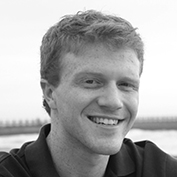The Six To Watch At COP18
Tim Hall | November 27, 2012.
With 17,000 people descending Doha, Qatar for the next round of UN climate change negotiations over the next fortnight, you’d be forgiven if you couldn’t remember who was who. Here are The Verb’s six people to follow.
Kumi Naidoo
The voice of the planet. Nature’s representative, by day the Executive Director of Greenpeace International, has had a big twelve months. Last year in Durban, fed up with the stalling and inaction of nations, Kumi led the largest and loudest protest in the UNFCCC’s history. The surprise “Occupy Wall Street” styled protest in the halls of COP17 drew widespread media coverage, caught the strict UN security off-guard and inspired hundreds of activists in the final hours of negotiations. Even some official delegates applauded his leadership. This June, at the Rio+20 Conference, he was again the voice of the future we want, demanding more action and loudly calling out the failures of negotiators and world leaders. No one understands the extent of the crisis better than Naidoo, and no one else communicates with more urgency and power. His views on the negotiations can be taken as the loud moral voice of the conference.
Connie Hedegaard
The force behind the “Durban Alliance” with the European Union, Least Developed Countries and Small Island States that helped forge the Durban Platform. Present at COP18 again as the EU Climate Commissioner, Hedegaard carries a heavy burden — balancing mixed interests within the EU and also of being a leader in Annex 1 country negotiations. One issue is likely to be the carry over permits from the first phase of the Kyoto Protocol — about 13 billion tonnes of surplus carbon dioxide have been allocated to some European countries. These emissions are obviously ones the LDCs, Small Island States and many other nations would rather not see sent into the atmosphere.
Abdullah bin Hamad al-Attiyah
Every year the COP presidency plays a major role in moving things along. In Copenhagen, fail. In Cancun, driver. In Durban, informal meetings may have slowed the meeting but, as the final desperate huddle on the floor – which produced an agreement showed – informal means save the formal process. This year’s COP Presidency, Qatari Deputy Prime Minister Abdullah bin Hamad al-Attiyah, deserves extra attention due to his past involvement with the oil industry, often seen as the stalwart of inaction on climate change. Once the president of OPEC, in 2007 he won the “petroleum executive of the year” award, and this year presented the same award at the “Oil and Money” night with 450 executives of the fossil fuel industry. Don’t expect to see any #endfossilfuelsubsidies tweets from this gentleman. But maybe we will see some neutral leadership and watch this once oil hungry executive bring together previously opposing interests?
USA
With many punters doubting the impact of Hurricane Sandy or the recent election results on America’s role at COP18, it may at the very least mean less inaction and stalling. Though President Obama did make promising signals towards action on climate change in his second term, the focus is by and large still on the economy. Sadly the US budgetary fiscal cliff may prove more important to US interests than the looming fast start finance “climate fiscal cliff”. Not to mention lingering tensions over what the future will look like…
China
Always crucial to climate change negotiations, the emerging super power is increasingly becoming central to any future outcomes. The recent change in leadership could mean a more rapid adoption of a low-carbon economy, and a more ambitious strategy to be the “good guy” on the international stage. Plus the new leaders may also see the obvious benefits in being the green superpower. Can China prove cooperative in working out a 2015 agreement? Will China push for ambitious goals? Will China cooperate with or bully fellow G77 members? And what of the BASIC bloc, in which China holds considerable influence, and it’s stance with the LDCs and Small Island States?
You
Will you sit at home and wait for the fate of the world to pop up in a quick news break on TV? Or will you be there, communicating the crisis, advocating the solutions, demanding more from your leaders, and pushing for what you believe in, for the world you want to live in? You have as much power to speak your mind as anyone else — embrace it. Be the difference.
















comment